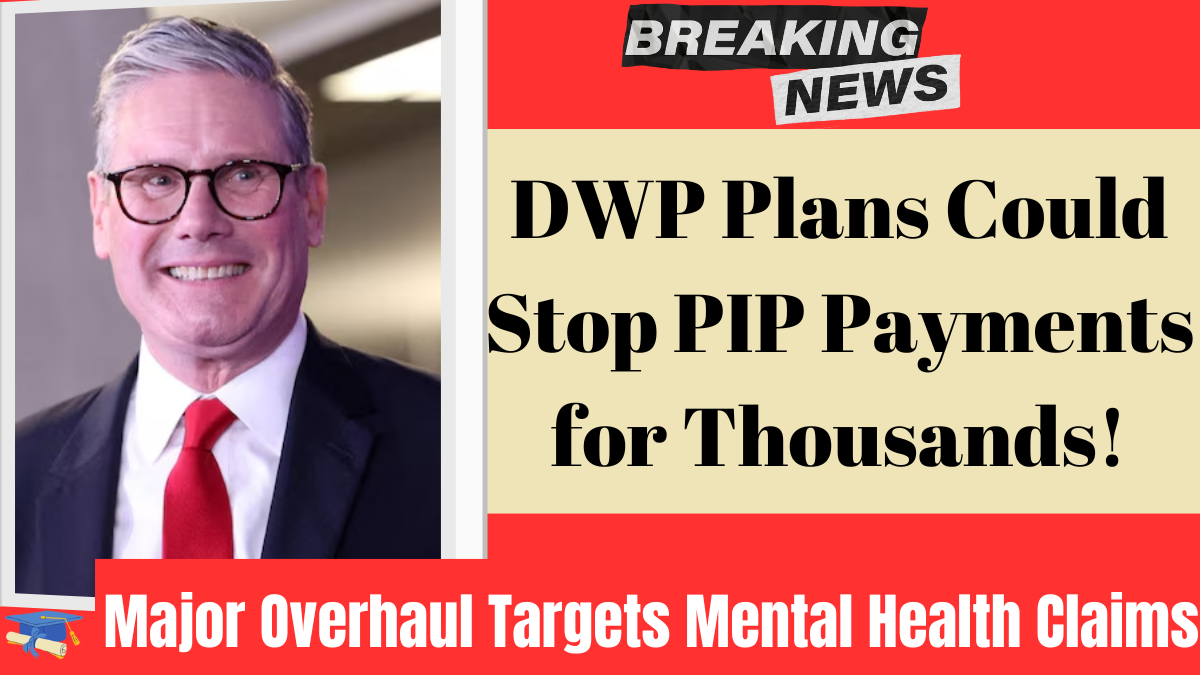A major overhaul of Personal Independence Payments (PIP) is under discussion, with new proposals suggesting that some claimants with mental health conditions may lose their benefits.
Since 2013, spending on incapacity and disability benefits has risen by over 40%, reaching £64.7 billion—surpassing the UK’s defense budget. This amount is expected to increase to £100.7 billion by 2029–30, prompting calls for urgent welfare reform.
Under the latest proposals, PIP payments could be stopped for those with mental health conditions, with financial support redirected solely to claimants with physical disabilities.

Why is the Government Planning to Reform PIP Payments?
- High PIP Spending on Mental Health Claims – Currently, 1.4 million out of 3.66 million PIP claims (about 38%) are for mental health conditions, including anxiety and depression.
- Rising Costs – PIP claims for mental health conditions increased by 209% from 2019/20 to 2023/24, with costs rising from £221 million to £683 million.
- Concerns Over Economic Inactivity – The number of people not required to work due to long-term sickness has surged, increasing by 42% among 25-34-year-olds.
What Changes Could Be Made to PIP Payments?
The Centre for Social Justice (CSJ), a policy think tank, has proposed:
- Ending PIP payments for mental health claimants and replacing them with “benefits-in-kind”, such as therapy or support services.
- Refocusing PIP funding on physical disabilities, arguing that mental health conditions are often misdiagnosed or temporary.
- Redefining eligibility criteria to differentiate between distress and diagnosed mental health disorders.
Who Could Be Affected by These PIP Reforms?
The proposed changes could directly impact millions of UK residents who rely on PIP for mental health-related conditions.
| Category | Current Status | Potential Changes |
|---|---|---|
| Mental Health Claimants | 1.4 million PIP claimants | May lose PIP payments, receive alternative support |
| Physical Disability Claimants | 2.26 million PIP claimants | Unaffected by reform |
| Young People (16-24) | 29% increase in long-term sickness | May need to prove work limitations more strictly |
| PIP Payment Range | £114.80 to £737.20 (rising in April 2025) | No change for physical conditions |
What Are Experts Saying About the PIP Overhaul?
- CSJ Report: Suggests that mental health diagnoses are often too broad, leading to an overreliance on disability benefits.
- Government Officials: State that the welfare system must be restructured to ensure benefits are allocated where they are most needed.
- Mental Health Advocates: Argue that removing PIP for mental health conditions could increase economic hardship and reduce access to essential mental health support.
FAQs
Why is the DWP considering stopping PIP for mental health claimants?
Rising costs and a 209% increase in mental health claims have prompted a review of how PIP funding is allocated.
Will all mental health claimants lose PIP?
Not necessarily. The reform proposals suggest alternative support, but details on eligibility changes are still unclear.
How much do PIP claimants receive?
PIP payments currently range from £114.80 to £737.20 every four weeks, increasing in April 2025.
What alternative support might replace PIP for mental health?
Proposals suggest “benefits-in-kind”, such as therapy, support services, and community programs, instead of direct financial payments.
What happens if my PIP claim is rejected under the new system?
Claimants may have to appeal or seek alternative benefits, depending on the final reform decisions.
When will the DWP announce the final PIP changes?
The Government will outline its official plans this spring, with potential reforms taking effect later in 2025.
Will PIP still be available for physical disabilities?
Yes, the proposed changes only target mental health claimants.
How can I prepare for possible PIP changes?
Stay updated with official DWP announcements and consult a benefits advisor to explore alternative support options.
Conclusion
The DWP’s proposed overhaul of PIP payments could significantly impact mental health claimants, with new plans suggesting an end to financial support for anxiety, depression, and other conditions. While the Government seeks to control welfare spending, critics warn that removing PIP for mental health could leave vulnerable people without essential financial aid.
As the Government prepares to announce its final decision, PIP claimants should stay informed and consider alternative support options in case of future changes.
Click here to know more.
A passionate content writer specializing in creating engaging, SEO-optimized content. With expertise in blogs, web copy, and storytelling, I craft words that connect with audiences and deliver results.
